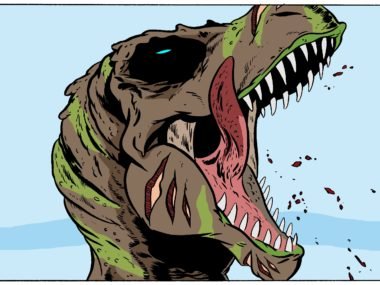Zach Breeding (one of our STL SPEX interns for spring 2020) writes about his experience reading issue #102 of local St. Louis literary journal River Styx:
I must admit I very rarely read entire magazines; I very rarely subscribe to them as well but that’s beside the point. My decision to read edition 102 of River Styx in its entirety, however, is one I don’t believe I will regret. Of this edition the work which struck me the most was Middle of the Night by Lee Martin; a short essay at the tail end of the publication. What follows is my take on this essay and Martin’s experiences which he details in the essay.

One’s adolescence is perhaps the time in one’s life that is most memorable, or at least the most formative. In Middle of the Night Lee Martin accomplishes not only a succinct retelling of their own origins of sorts but they also provide us with an, at times, almost mythical telling of teenhood in the Midwest. The allusion I make to myth here is not one that seeks to compare the essay to that of falsity or bravado but instead to our more modern understanding; a story in which Joseph Campbell is able to set foot.
Middle of the Night at its most basic is the story of wanting to run away. To run away from one’s family and the world that can only be seen taking shape through the eyes of one taking shape at the same time. I see in this story the angst and confusion of our formative years synthesized into a few pages. Martin is able to explore the ways in which Bob Dylan and his contemporaries spoke to him, almost goading him, and the ways in which this message was received and rebuked in his own life. “[E]very episode began and ended with Bob Dylan’s ‘Like a Rolling Stone’ playing over my Character’s arrival or departure” (63), Martin says of a script he wrote at the time, a script which he soon discovered did not fit into his own life. Martin refers to the years in this essay as his “lost years.” Yet, I see in this story how much breadth of life Martin was able to discover in these lost years; how much life they found in discovering that their experience, fears, and hopes could not be estimated by a few, idyllic, songs about runaways and outcasts.
If you enjoyed this essay I would recommend William Faulkner’s As I Lay Dying which is a more long form approach to this idea of alienation within one’s own family and society as well as The Street by Ann Petry which places its protagonist in a similar, though admittedly much more dramatic and high stakes, environment.






